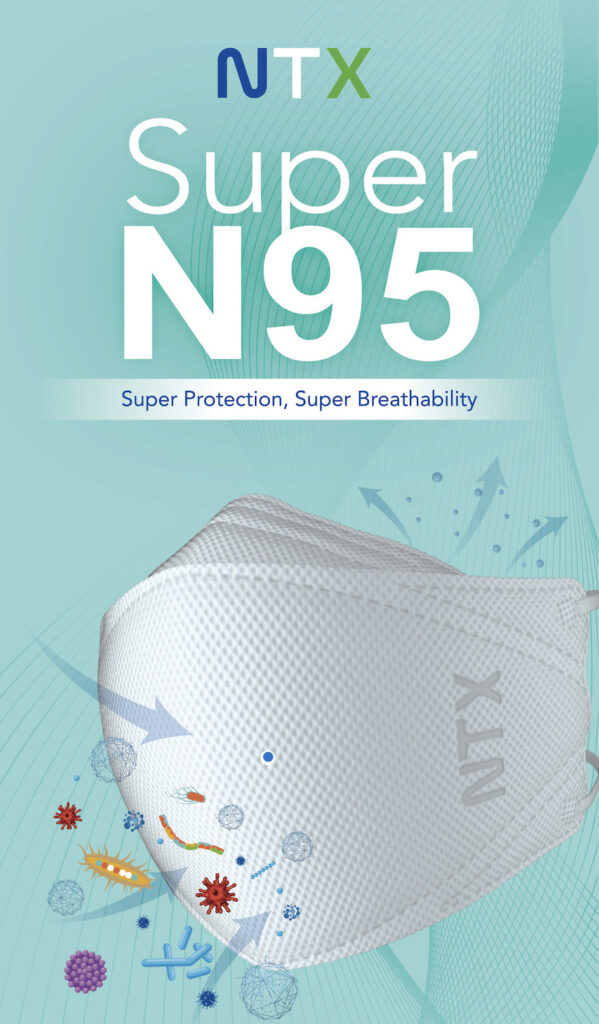Seeking to positively change the textile dyeing market, NTX Global believes its Cooltrans solution is the most sustainable and advanced colouration technology on the market. Harry McMullen reports.
NTX Global was first founded in the late 1990s, when couple Sandra Chou and Kalvin Chung left their native Taiwan to settle in Shanghai. Back then, the term sustainability was far from the industrial buzzword it is now, and the Chinese dyeing market of the time was one of the most pollutive in the world.
Determined to make an environmentally inspired change to the textile dyeing industry, Chou and Chung began by assessing the science involved in the dyeing process in order to expand its capabilities and to reinvent its unsustainable tendencies.
“When we arrived in Shanghai from Taiwan, we studied sublimation colouration because we wanted to advance the technology that was available at the time,” says Sandra Chou, managing director and co-founder of NTX. “However, in the beginning, starting a company was our furthest thought.”
From the conception of the company, the pair’s ambitions to reshape the landscape of the textile dyeing industry have never faltered. Fast-forward 25 years and the company’s innovative Cooltrans colouration range is commercially rolled out and has been selected for Fashion for Good’s Accelerator Programme, an initiative that handpicks a number of products from around the globe looking to make a positive impact in the textile & apparel supply chain.
Over the last quarter-century the company’s adopted motto of ‘passion, inspiration, persistence’ has remained the same.
The ancient Chinese Confucian philosopher Mengzi says that in order to achieve success in a mission, a great burden and sacrifice must be made. From this, character strength is built, and abilities are enhanced. Chou references this Mengzi proverb as she says it applies it to the very foundations of the company’s establishment.
“Kalvin [Chung] is a tinkerer, he is a man of passion, the more that he was told that something is impossible, the greater he sought to overcome the challenge. Whereas I was the cornerstone. I was methodical and practical, and I was able to implement and materialise,” explains Chou, who believes that the differences between their personalities created a perfect recipe for the NTX brand.
“Individually, our personalities were opposites, but we had a shared passion and drive to look to the future,” Chou adds. “Everyone had said was impossible, yet we persisted and created the technology, NTX was the natural evolution for the purpose to further advance the technology.”
REMODELLING THE DYEING PROCESS
When first addressing the problems in the dyeing market, the pair looked at the science behind sublimation dyeing. Chou says that they quickly realised the chemistry involved in the dyeing industry had to be readdressed to redevelop unstainable processes and enhance their capabilities.
Their original goal was to create a methodology for the sublimation technique that would make it applicable to more media and drastically reduce the water and energy needed in sublimation process.
“The laws of physics and chemistry precluded the technology from becoming more than it is,” explains Chou. “Without a fundamental changeover in the methodology, process, and chemistries utilised, there would be no way to allow for sublimation to be applied to more materials.”
However, with the NTX Cooltrans, Chou and Chung made a significant breakthrough.
The product operates by changing the chemistry involved in how the dyes are turned into substrates, and it is because of this that NTX Cooltrans is able to achieve its goals of colourising a wide number of textiles without heat, while vastly saving on resources.
These impressive properties make Cooltrans a stand-out product in a market that is plagued with environmental problems. NTX says that due to its innovative solution excessive water is reduced by 90%, energy use is reduced by 65% and the use of unsustainable dyes and chemicals is reduced by 40%.
“Our core value has been that we came into this world with nothing, we do not want to leave behind any burden for the future,” says Chou. “We were not looking for profitability, it was driven by our passion to triumph over what everyone said was impossible. So, whatever we created, needed to abide by the core principle of leaving no burden to our future generations, whilst creating the most advanced colouration system in the world.”
The eco-benefits of the Cooltrans product are not just self-declared either. NTX put forward its product to the Sustainable Apparel Coalition to get an MSI score within the Higg’s Index. Subsequently, the product scored 5 for nylon application, 6 for polyester application and is still awaiting the results for its cotton application.
“While we knew that we would have a low impact score, we were actually surprised to find our scores were lower than any other technology available without remark,” adds Chou.
NTX has engineered three variants of the Cooltrans solution, to accommodate a variety of applications. The range now includes the Cooltrans 2.5 for high resolution artwork prints, Cooltrans III for woven materials (particularly denim) and NTX’s latest addition, Cooltrans V for solid colour print dying as well as yarn dye effect patterns such as tartan, pinstripes, mélange or heathers.
SUSTAINABLE EXPANSION
Having set up its distribution and production hubs in Asia, Chou believes that the continent is a hotbed for sustainable textile innovation despite its turbulent track record with sustainability. “The far east region happens to be where there is an abundance and diversity of textile industry expertise,” she says. “Most importantly, the region has a critical mass of industry that makes it an innovation and manufacturing hub.”
However, Choi believes that the Cooltrans product is so versatile and innovative that it will not be long until it is providing other global markets with world-class dyeing technology.
“Cooltrans is so automated, clean, efficient, and modular enough to make it feasible to integrate it into already industrialised regions such as North America or Europe. The waterless technology will also make the product attractive to water scarce regions such as South Asia and the Middle East. We believe it is not a matter of if, but when we will grow our operations into these regions,” she adds.
Before NTX makes concrete plans to roll out its products on a global scale, the company believes that the textile industry and consumers need to change their attitudes to ensure a sustainable future.
“Faster, cheaper, better is the unofficial motto within the textile industry,” explains Chou. “When customers see something they like, they want it yesterday and they want it cheap.”
“NTX will be the first to step forward by making sustainability economical and affordable, but the industry and the consumer needs to change its mindset. As a human race we need to make things that are simply better, last longer and do not have a negative impact on the plant. The resources we use for food and potable drinking water should not be tampered with for the production of the latest dress or handbag,” she adds.
RECOVERING FROM COVID-19
The Covid-19 pandemic managed to impact every far-flung sector of the global textile supply chain and the industry is still feeling its effects. Where most managing directors would be concerned over company profit margins, Chou’s take on the outbreak of the virus is one of positivity.
“This time last year, when industries had shut down, when planes could not fly and mass congregations were not permitted, the skies were especially blue, the metropolitan waterways were no longer odorous, and the mountains, previously blocked by smog, were suddenly visible,” she explains. “Arguably, this is when people around the world reconnected with nature in a way that did more to raise environmental awareness.”
In the height of the pandemic, NTX adapted its workflow to accommodate to the new normal. In 2020, the company accelerated one of its pipeline products, the NTX Super N95 – an electro spun facemask respirator with the same capabilities as a surgical mask. The project was made possible due to NTX’s digital and versatile product portfolio and illustrates the company drive for human sustainability as well as natural sustainability.

Chou explains that NTX is far from finished on its mission to clean up the global supply chain from unsustainable practices. Just as her and her husband did 20 years ago, Chou is now looking to sustainably reshape more sector of the textile market.
“We will continue to grow our Cooltrans family but there are other areas of the market we would like to address,” she says. “As you know, the scouring process is still chemical and resource heavy, so we are working on a solution to address the preparation of material for colouration that will also be waterless. We will announce our plans later this year.”
In little over a quarter-century, NTX has managed to invent a scalable alternative to one of the textile market’s most unsustainable practices.
“Nothing is impossible at NTX,” concludes Chou.
Have your say. Tweet and follow us @WTiNcomment

